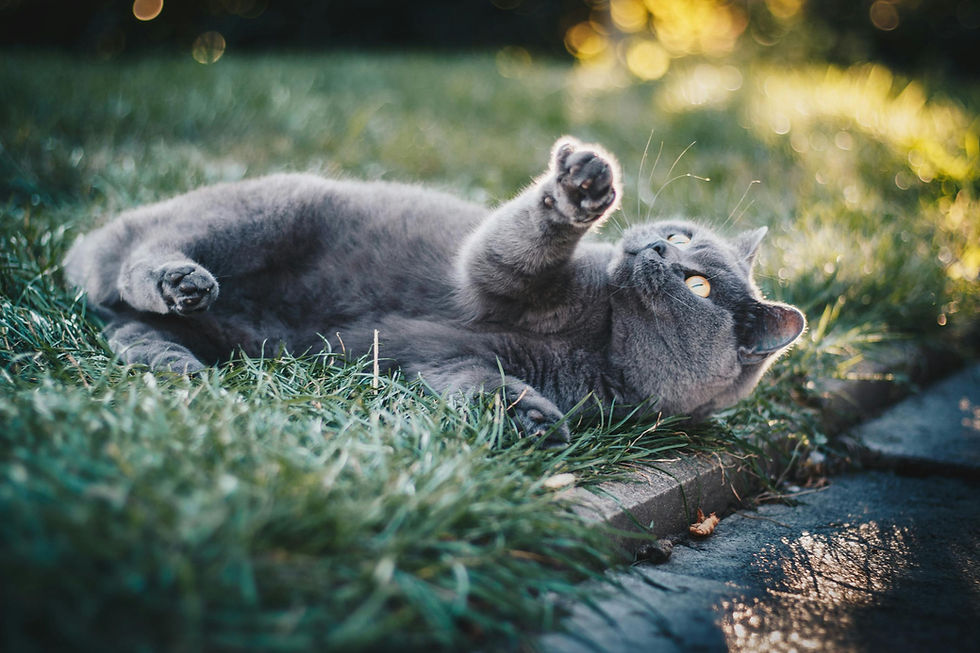Why Is Protein So Important for Cats?
- Snappy Tom Pet Supply
- Mar 24, 2023
- 2 min read

Protein is an essential nutrient for all living organisms, including cats. Cats are obligate carnivores, meaning they require a protein-rich diet to thrive. Unlike dogs and humans, cats have a limited ability to synthesize certain essential amino acids needed for various biological processes. Therefore, including high-quality protein in a cat's diet is crucial to ensure their overall health and well-being.
Read on to learn more about the important role protein plays in feline nutrition.
Proteins contain essential amino acids
Proteins consist of amino acids, which are the building blocks of cells, tissues, and organs in a cat's body. Amino acids play a vital role in various physiological functions such as digestion, metabolism, immune system function, and the growth and repair of tissues.
There are 20 different amino acids, and cats require 11 of them. A cat’s metabolic functions will produce some of these essential amino acids but not all of them. Taurine and arginine are two amino acids that cats can’t produce on their own. Therefore, they must obtain these nutrients from the food they consume.
Animal-based proteins contain all the essential amino acids that cats require. In contrast, plant-based proteins, such as grains and vegetables, do not provide all the essential amino acids a cat needs. While plant-based proteins can be a source of protein for cats, they should not be the primary source of protein in their diet.
Protein fuels a cat's growth and development
Protein is essential for a cat's growth and development. Kittens require more protein than adult cats to support their rapid growth and development. A diet insufficient in protein can result in stunted growth and development in kittens. Similarly, pregnant and lactating cats require a higher protein intake to support their offspring's growth and development.
It's essential for maintaining muscle mass
Protein is also crucial for maintaining muscle mass in cats. Muscle tissue is constantly being broken down and replaced, and a diet deficient in protein can lead to muscle wasting and weakness. This can be especially problematic for senior cats with reduced appetite or who have difficulty consuming food.
Protein plays a critical role in a cat's immune system. Amino acids obtained from protein produce antibodies and other immune system components that protect against infections and diseases. A diet lacking in protein can lead to a weakened immune system, leaving cats more vulnerable to illness and disease.
How much protein do cats need?
Ensuring that a cat's diet contains the appropriate amount of protein is essential. Adult cats should consume a diet containing at least 26% protein on a dry matter basis, while kittens require a diet containing 35-50% protein. Ultimately, the exact amount of protein needed will depend on various factors, such as the cat's age, weight, and activity level.
Snappy Tom Ultimates are an excellent source of the healthy, natural, lean protein your cat needs.
The Bottom Line
As obligate carnivores, cats require a diet rich in animal-based protein to ensure their overall health and well-being. Protein is vital in a cat's growth and development, maintaining muscle mass and supporting their immune system. Therefore, providing cats with a high-quality protein source is crucial to meet their dietary needs and keeping them looking and feeling great!







Comments